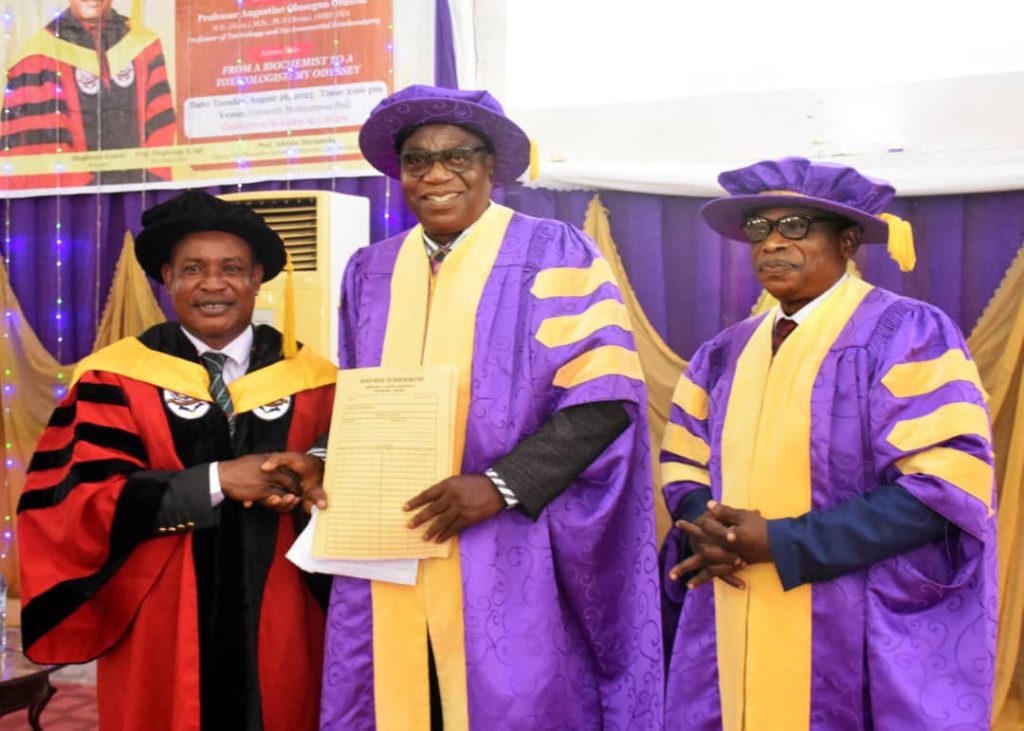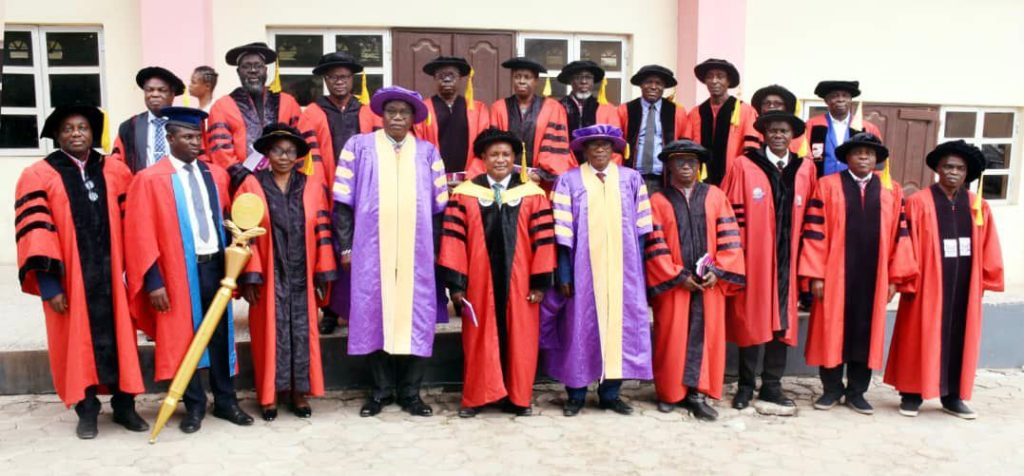A Professor of Toxicology and Environmental Biochemistry, Augustine Olusola, has called for stringent and concerted efforts to curb food adulteration, warning that it contributes to chronic diseases affecting the liver, kidneys, blood, and reproductive organs.
Delivering the 46th Inaugural Lecture of Adekunle Ajasin University, Akungba-Akoko, on Tuesday, August 26, 2025, titled “From a Biochemist to a Toxicologist: My Odyssey”, Prof. Olusola outlined strategies to mitigate the growing menace of adulterated food products.
He recommended stronger enforcement of food safety standards, increased public health education, continuous research and monitoring, and strict penalties for offenders. Agencies such as NAFDAC and SON, he said, must intensify surveillance in open markets, particularly at retail points where adulteration is most prevalent.

Prof. Olusola also urged massive awareness campaigns to empower consumers to detect adulterated products and understand associated health risks, while promoting direct purchases from reputable sources. According to him, economic incentives and certification programmes for small-scale producers who comply with safety standards would encourage healthy competition.
“Continuous scientific investigation is essential to track trends, refine detection methods, and assess long-term health impacts. At the same time, rigorous legal enforcement is crucial to deter offenders,” he stated.
Citing recent research, the don revealed that most markets in the state, especially within the Central Senatorial District, are flooded with adulterated products, posing grave health risks.

Turning to traditional medicine, Prof. Olusola stressed the need to bridge the gap between indigenous knowledge and modern science to combat contemporary diseases. He highlighted the promising therapeutic potential of a local herb, Clompanus pubescens, in the treatment of diabetes.
“In indigenous practice, Clompanus pubescens has been used for fatigue, memory loss, and stress—symptoms often observed in diabetic patients with cognitive decline, now recognised as diabetic encephalopathy,” he explained.
Laboratory tests, according to him, showed that rats treated with the herb exhibited improved memory, learning behaviour, and relief from diabetes-related symptoms. Despite its traditional use in Nigeria and Cameroon, the herb remains poorly studied, presenting a new frontier for scientific research.
“I advocate for a new scientific movement—one that tests, validates, and regulates natural compounds with the same rigour applied to synthetic drugs. This is critical in Nigeria, where natural products can provide low-cost, culturally accepted therapies,” Prof. Olusola emphasized.

Earlier, the Vice Chancellor of Adekunle Ajasin University, Prof. Olugbenga Ige, who chaired the event, described Inaugural Lectures as opportunities for professors to share their research for societal benefit. He commended Prof. Olusola for his invaluable contributions to scholarship and the university.



